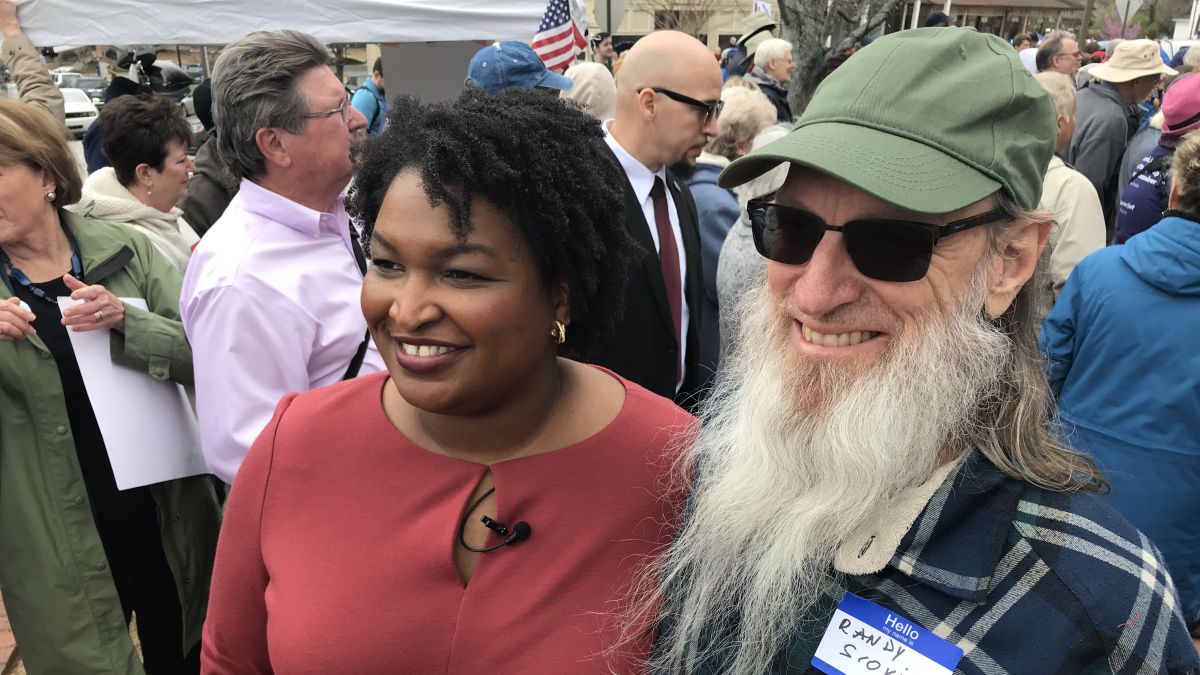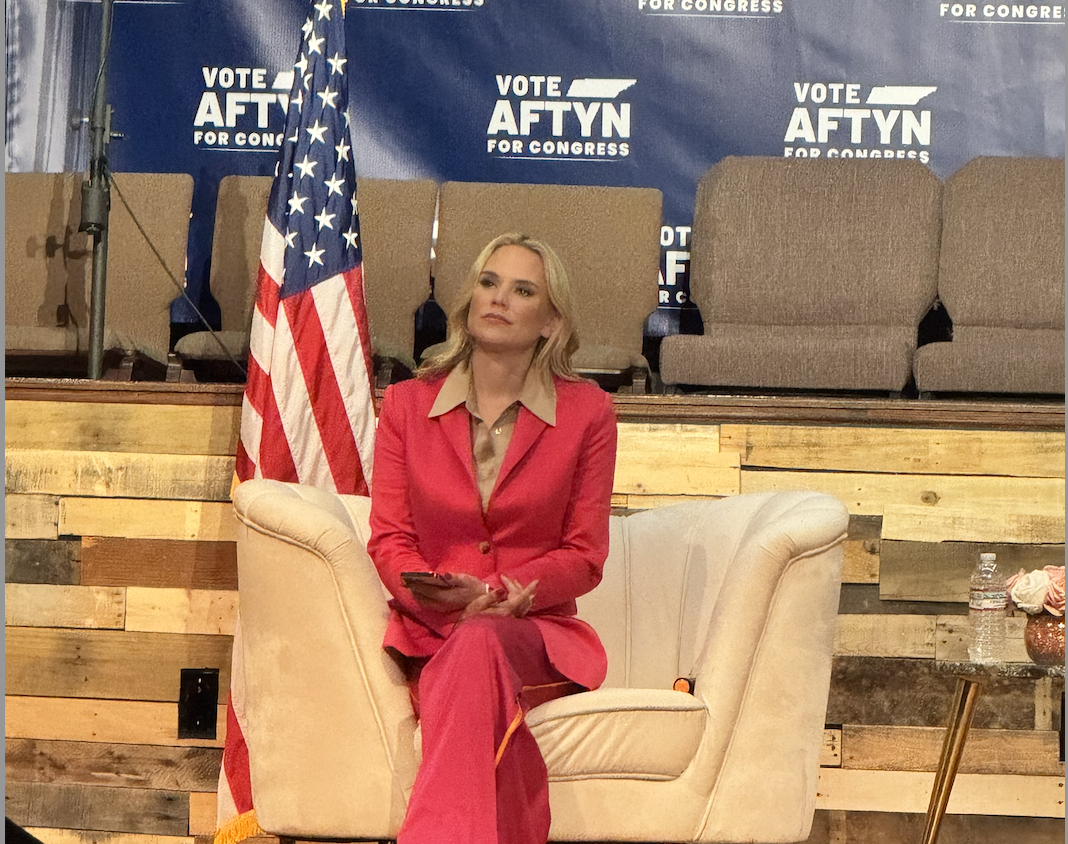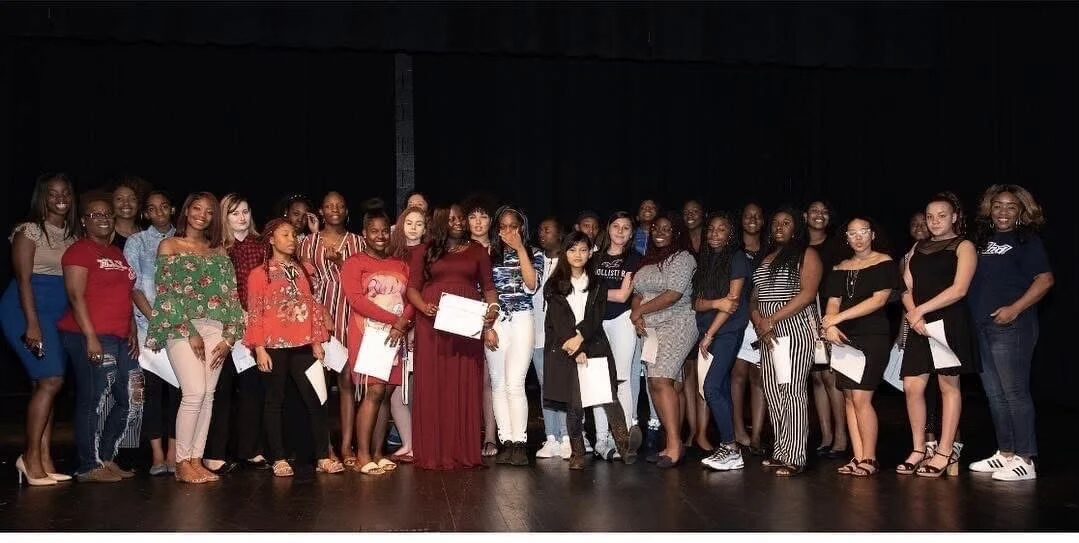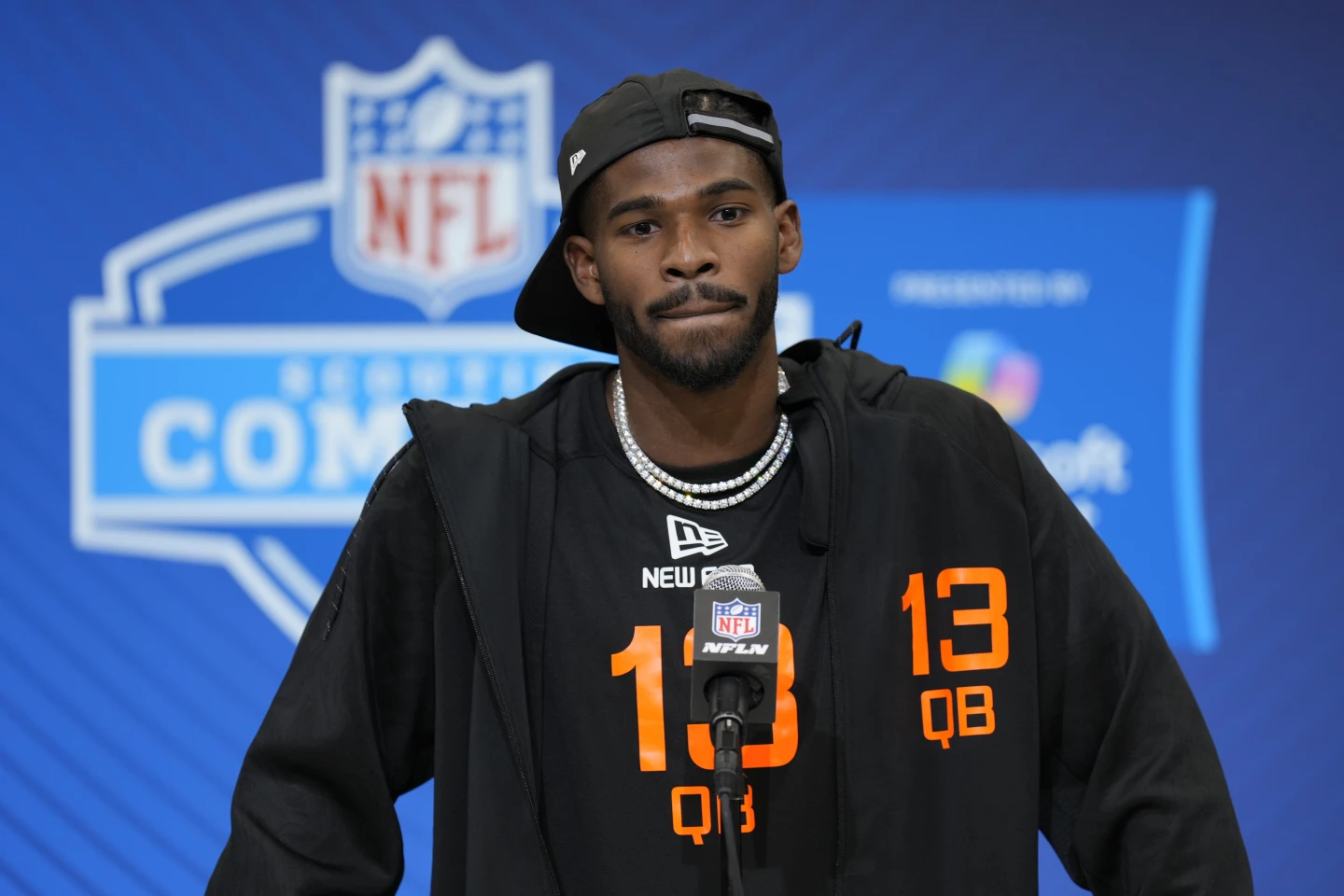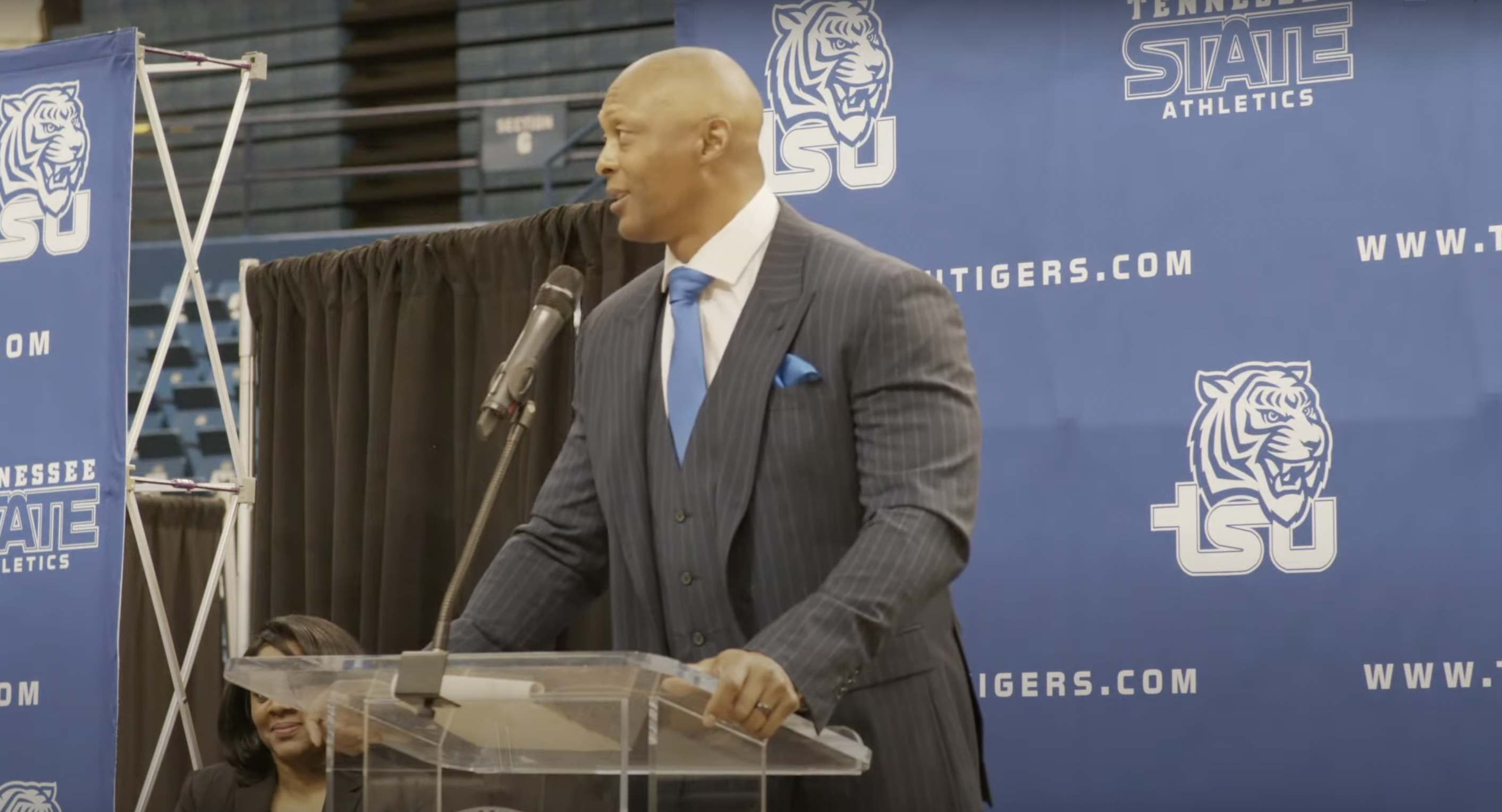By Gregory Krieg, | CNN Newsource
A pair of young volunteers for Democrat Stacey Abrams’ campaign for Georgia governor stood under umbrellas on a sloping suburban street in Decatur, a 15-minute drive east of Atlanta, chewing over Georgia’s premier political contest — and one of the country’s most watched.
Olivia Volkert and Quinn Mulholland, both 22-year-old recent college grads, had their fliers stacked, talking points ready and an app in hand that pointed them to potential supporters’ doors. They explained why this time around — with this Democratic candidate — feels so different.
“First and foremost, she’s an African American woman running for governor in Georgia. That speaks for itself,” Volkert said.
“I also think,” Mulholland added, “that there’s something to be said for the novelty of having a Democrat in the South running as an unapologetic progressive. You don’t really often see that, so I think it’s something that excites Democrats across the country.”
They called it a “new playbook” — a rejection, Volkert said, of “the centrist, middle-of-the-road approach didn’t work for Jason Carter.”
Carter, the grandson of former President Jimmy Carter, challenged Gov. Nathan Deal in 2014. He ran what’s long been the textbook campaign for Georgia Democrats and, as has become their custom, lost.
Abrams, they said, is going another route.
“Mobilize and excite the base and increase turnout among people who are actually Democrats,” is how Mulholland described it. “That really hasn’t been tried (here) before and I think it’s something that could become a national template if it works.”
That strategy is being tested in the Georgia governor’s race, which pits Abrams against the state’s Republican secretary of state, Brian Kemp, who won his primary with the backing of President Donald Trump. Abrams and Kemp will face off for the first time Tuesday night in a debate
A glance at Georgia’s political visitor log in 2018 would suggest the young canvassers were on to something.
Democrats considering presidential bids have been stalking the state for months, from the early stages of a primary that Abrams would capture in a landslide through to these final weeks of the general election.
If she emerges on Nov. 6 — or after a December run-off, should neither candidate in this neck-and-neck race score a majority next month — as the governor-elect, it would bolster a sense of Democratic viability in weakening Republican stronghold, transforming it in the eyes of political strategists into a 2020 battleground.
Abrams’ campaign, driven by a progressive policy agenda and political vocabulary, but leavened with friendly appeals to the state’s cautious business community, would be held up as an outline for how to win it.
National fights come home to Georgia
On the Republican side, Kemp is following a roadmap of his own.
His campaign has relentlessly sought to portray Abrams as an extremist, falsely accusing her of trying to drive undocumented immigrants to the polls, and describing the former state House minority leader as an agent of the far left.
He will likely continue that line of attack in Tuesday’s debate, which comes a day after Abrams’ participation in a 1992 protest that involved burning the Georgia flag, which at the time included the Confederate battle emblem, resurfaced in The New York Times.
In response to questions over his office’s handling of voter registrations, Kemp in a recent op-ed suggested — as he has throughout — that the concerns were ginned up by an Abrams campaign that had “felt a sudden loss of momentum.”
“Instead of hitting the road to connect with Georgia voters,” he wrote, “they manufactured a ‘crisis’ and asked left-wing allies to fan the flames.” (Abrams began an “early vote bus tour” on October 15, which will run on-and-off through Election Day.)
In an interview after she addressed an education summit at The Carter Center in Atlanta, Abrams recalled early skepticism over her campaign tactics transforming into an almost giddy curiosity over “how we made it work, especially in the Deep South,” after the primary.
“I’m an African American woman who is charting a very different path to doing this,” Abrams said. “I think people want to know: Will it work? But I also think they’re excited by the possibility it could work. Because it changes the conversation about how we have these debates, how we run these campaigns. It shows that there’s another way to win.”
Hours earlier, Ayanna Pressley, the Boston city councilor who is poised in 2019 to become the first African-American woman to represent Massachusetts in Congress, spoke alongside Abrams at
“I’ve always rejected the notion that people don’t vote and don’t show up because they’re ignorant, indifferent, apathetic, don’t know any better,” Pressley said afterward. “People don’t participate because they haven’t been invited to. Because, in some states, it’s inconvenient
In the first week of in-person voting in Georgia, those hurdles — real and perceived — have dominated the headlines, amid reports that Kemp, the state’s chief elections officer, has effectively used a controversial state law as a tool for suppressing minority turnout.
His record over more than eight years in the job, during which the state purged more than a million “inactive” voters from its rolls has bred deep distrust among political opponents and activists, particularly in the communities Abrams had worked to energize this cycle
Civil rights groups launched a pair of lawsuits in response, while Kemp and his office denied all suggestions of wrongdoing, accused Abrams of using the reports to excite her base and dismissed the hubbub as the work of “outside agitators,” a historically loaded term dating back to the Civil Rights era, while touting a new record number of registered voters
Abrams the ‘extremist’ vs. Abrams the dealmaker
Like so many others in the party running in 2018, Abrams’ trail talk typically hinges on health care prescriptions. Unlike Kemp, she wants to expand Medicaid under Obamacare, a transition that would cover an estimated half a million uninsured people.
The campaign says the move would also create more than 50,000 jobs and function like a “law enforcement tool,” as Abrams argued in reference to the potential for new mental health funds
Abrams, who established a reputation as a dealmaker during her time as a legislator, is confident she can wrangle support for expansion from Republican lawmakers, especially those from the rural counties where hospitals and doctors and either leaving or gone.
“I don’t expect to flip the (state) House and the Senate,” she said at The Carter Center, “but I expect to add some new friends.”
State Rep. Allen Peake, one of the GOP votes Abrams would likely need, is backing Kemp and said he expected the Republican to keep up the GOP’s winning streak. He doesn’t want to expand Medicaid or agree with Abrams’ “policies and the agenda that she intends to promote.”
Still, he readily described her as a friend and talked about meeting the future minority leader when they took office together as part of the same legislative class in 2007.
“It was clear that she was a very intelligent woman, in fact
“The demographics in Georgia are continuing to evolve and with the growth of Atlanta we’re bringing more progressives into our state and so I think, from a national level, folks are seeing that maybe there’s a turn and shift potentially in Georgia in the future,” Peake said. “I’m not sure I buy that completely, but it is true that the demographics are shifting.”
Democrats have for years been counting on those evolving demographics to deliver
The GOP took over the governor’s mansion in 2003, assumed control of the state legislature in 2005 and have held on, without a break, ever since
Through it all, for about a decade now, African-American voters as a percentage of the total electorate have been consistently in the 30% range, according to University of Georgia political science professor Charles Bullock.
“Abrams is really going to try to mobilize individuals who are registered but have sat out in previous elections,” Bullock said. “That’s what makes it such an interesting contest: she is taking a different approach to what has been done in the past.”
The class of 2020 can’t stay away
That novel pursuit, he added, extended to the campaign’s willingness — indeed, their desire — to campaign with and alongside members of the expected presidential primary class of 2020, a group headlined by national figures like Warren and fellow Sens. Bernie Sanders, Kamala Harris, Cory Booker, Kirsten Gillibrand and former Vice President Joe Biden — all of them progressives, to varying degrees, hailing from blue states outside of the South.
“In the past, if Elizabeth Warren or Bernie Sanders, those kinds of folks,
On the final day of voter registration, Warren was greeted by hearty crowds in and around Atlanta. First at a rally at Clayton State University and then a phone bank launch a few minutes south in Jonesboro.
“I’m here this morning because I believe in Stacey Abrams,” Warren declared during the morning event, before turning to address the still fresh fight over new Supreme Court Justice Brett Kavanaugh, connecting in her speech the process that confirmed him to “a rigged system that rolls over women, rolls over African Americans, rolls over students, rolls over anyone who gets in there way.”
“It hurt,” Warren said. “But now it is time to turn our pain into power.”
Jeff Young, a 68-year-old retired patent attorney from Atlanta who called himself “a big fan” of Warren, applauded at every turn.
“I admire Stacey Abrams for wanting to have her here
The Abrams campaign views the embrace as mutually beneficial. They believe that Georgia Democrats, a generation of whom have never seen their candidate win a big statewide election, seeing national stars on the ground, stumping for their candidate offers a stamp of validation — evidence that the momentum they feel is real and victory is possible.
“I want our friends to come from around the country,” Abrams said, “because you need people to believe things for you before you believe it for yourself.”

